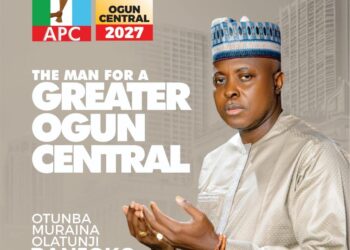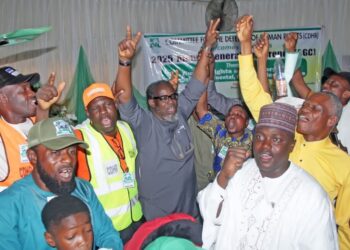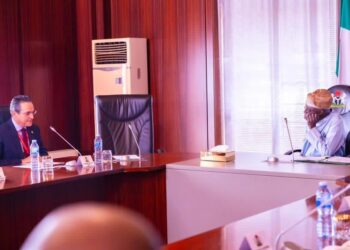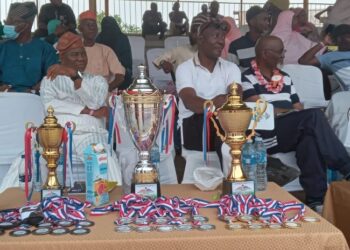A people’s wisdom holds viable solutions to their problems. Unfortunately, cultural hypocrisy or self-deception prevents some from reaping full advantage. How do Nigerians and their leaders overtake solutions to their problems in their desperate search for solutions?
I begin this article by narrating an experience I encountered years back. In one of our evening discussions, my hostel mate, a master’s student of Veterinary Medicine, requested to know my project’s topic. ‘Tropes of Folklore in … Facebook Articles,’ I told him. Then he asked sarcastically, ‘And how does that improve Nigeria’s economy?’ I responded the way I could and got that done with. Months after, he was doing some washing outside while I was studying in the living room. Then I overheard his telephone conversation with someone in Yorùbá. He said, ‘Bẹ̀rẹ̀ pẹ̀lú “Etí kan ò ye’rí, bàtà kan ò ye’sẹ̀”’ (Begin with ‘one ear disfigures the head just like a single leg of a pair of foot-wears does not fit the legs’).
The above expression is obviously is a line from the Yorùbá folklore. Consumed by curiosity, I went out and asked if he was chanting an incantation on a Sunday morning.
He responded, ‘No, a friend forgot a particular odù-Ifá, and I was trying to put him through.’ ‘I see!’ Suspecting the undertone of my reply, he quickly added, ‘This is purely an academic exercise o, so don’t think there is something diabolical about it.’
Two things struck my mind about the engagement. First, my friend could ever resort to folklore in solving a problem. Second, he could also do ‘pure academics’ with folklore. Some people feel reluctant to identify with cultural resources to which they resort at important moments and corners, because of their hatred for culture. That comes with a price! Constantly, they find themselves webbed in glaring self-contradictions such as the above. Man cannot sever himself from culture.
Ben Elugbe, a now retired Professor of the University of Ibadan, observed a similar attitude to the Nigerian Pidgin from some elitist Nigerians. Elugbe laments, ’Naijiria Pijin be laik pikin we no get papa bot evribodi de sen am mesej’ (Nigerian Pidgin is like a child who has no father but everybody sends him on errands) (Elugbe, 1995:284) in Bamgbose (1995). Lord Chesterfield (1694-1773) represents another instance of self-contradiction that readily comes to mind. He had warned his son to avoid using proverbs because “… they are vulgar and language of low company” (Wolfgang, 2000:25). But his series of letters written to educate that same son between 1741 and 1749 deployed proverbs.
Nigeria is writhing! The country is helplessly groaning under the weight of terrible artificial afflictions occasioned by some interests. It is plagued with countless woes: corruption, wanton destruction, impunity, banditry, disrespect for human life, etc. It is immaterial whether some of these are caused within or without, within but supported from without, without but supported from within, within or reinforced from without, etc. Nigerians can save their country if they are ready to. Formal institutions such as the judiciary system, EFCC, ICPC, among others, have been designed to address these problems. The level of success achieved so far by these various structures is left for dear readers to assess.
What very few Nigerians will doubt however, is that the problems persist. Why? Are the structures not potent enough? They are! Their failure consists in the sad reality that some Nigerians cannot connect the country’s many problems with its citizens’ perceptions and their culture’s potency to salvage this.
Humanity has taken flight of the country. The concept of humanity denotes compassionate, sympathetic, or generous behaviour or disposition: the quality or state of being humane: http://www.merriam.webster.com. The main idea is being sensitive to the plights of others, and being true to one’s societal expectations.
To be human could be likened to the Ogù concept of mẹdagbe or the Yorùbá concept of omolùabi.These two literally translate to a good person. A people’s folklore is central to the making of humanity and one cannot undermine the salutary effects of that on all aspects of human society, economy inclusive. This fact was lost on my doctor-friend, who wants to know how a study in folklore could improve Nigerian economy. In this body of thoughts are lines for self-evaluation, communal critiques, systemic criticisms and scolding. They are recognised by their introduction: How shall it be said that …?, What ears will hear that …?, Where is it heard that …?
For instance, how shall it be said that leaders are not bothered that the citizens of their country are dying for lack of the services they owe them? What ears will hear that the Nigerians’ taxes are not spent for the purposes for which they are meant? Where can it be told that someone puts knife to an innocent person’s throat and slits it without emotions? How can it be said that just one person or a few individuals greedily stack away money meant for a people’s project? Where can it be said that a country’s common wealth is being depleted by a few people and no one is raising any finger? How shall it be heard that a country’s system of education is destroyed by its leaders?
The introducing lines How can it be told …?, What ears will hear that …?, Where is this defensible?, etc. mean that the acts being described are not normal. They portray indignity, shamelessness, irrationality, disrespect, and do serious damage to the perpetrator’s personality! These implications sink into the people’s subconscious minds. They are always aware of them, and have whatever they do guided by that awareness. It is when such consciousness is cultivated that the formal structures mentioned above can thrive and be effective. Where human faculties are not healthy, these institutions are bound to be messed up. Such is their fate in Nigeria.
In the garden of words and thoughts, timelessness is courted!
Mewhenu Hosu,
Lagos State University International School, Ojo, Lagos State
mewhenu78@gmail.com





















